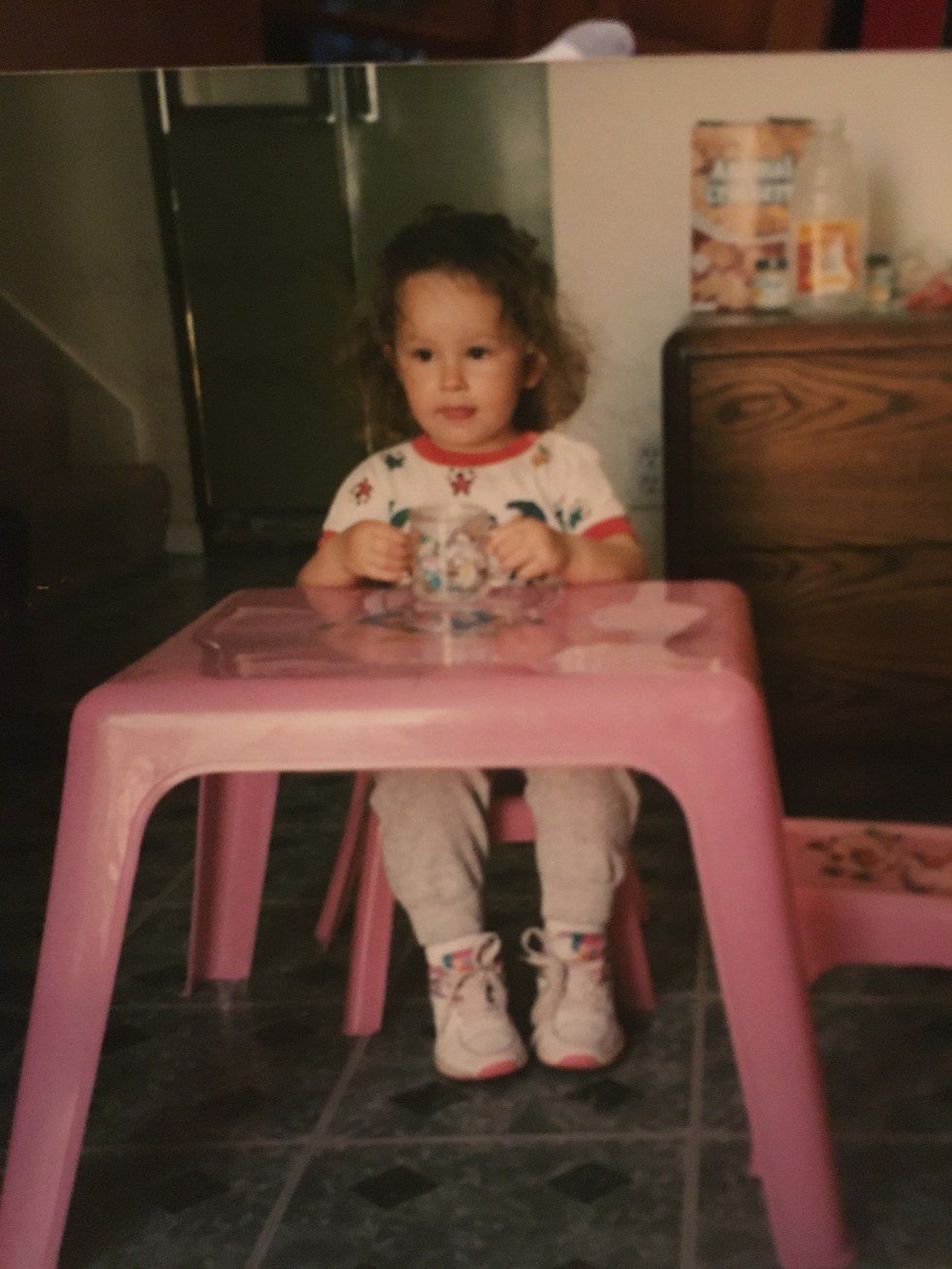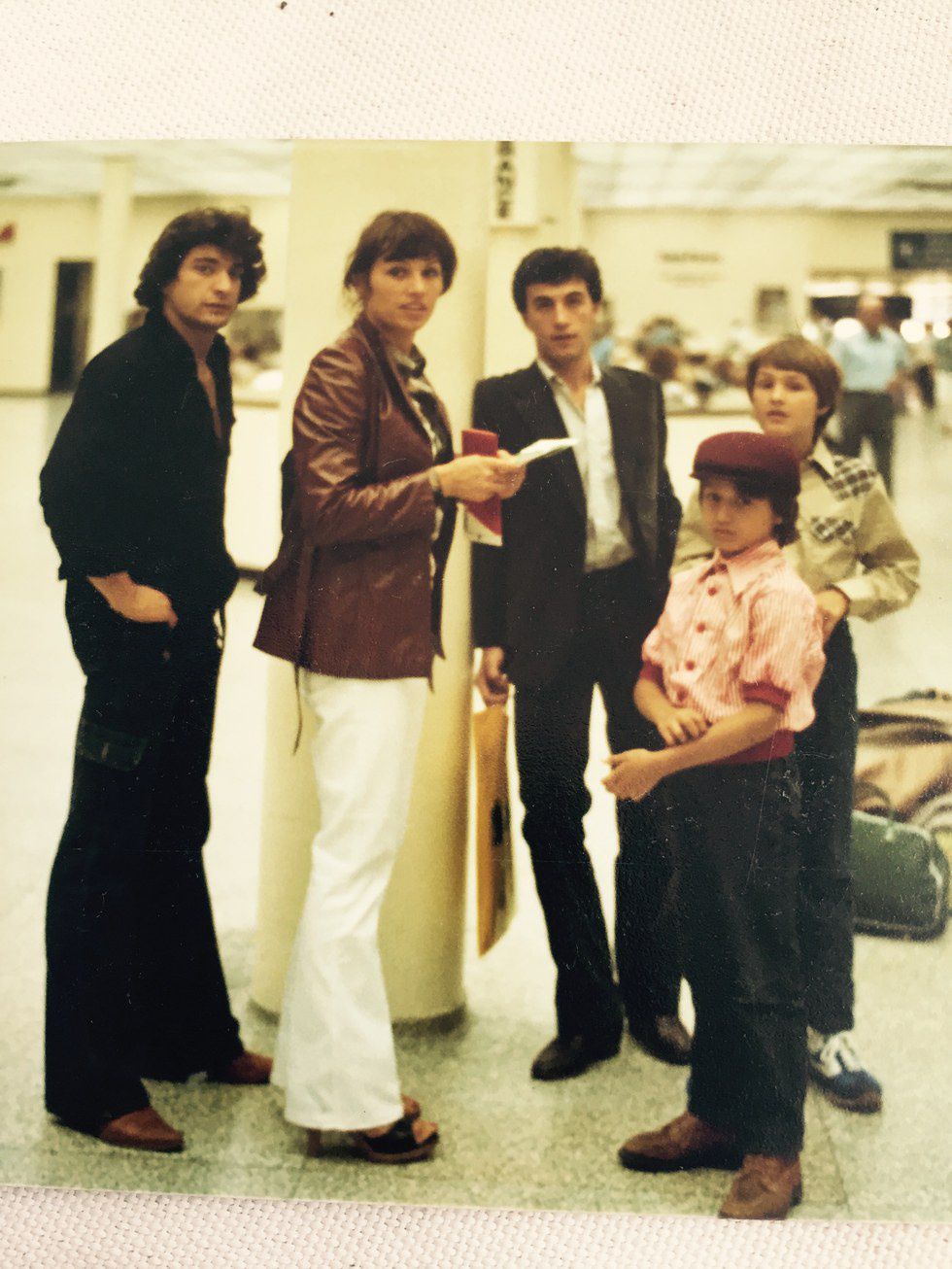“The fall of the Wall had transformed each of us into something akin to a child prodigy, upon whom great expectations were placed.” - Jana Hensel
This quote is from Jana Hensel’s memoir about the fall of the Berlin Wall. Once the wall separating the East from the West fell, the first generation “immigrants” such as Jana had access to opportunities their parents could have only dreamed of. My own mother did not grow up in East Germany; she grew up to the east of East Germany in the heart of the Socialist Bloc--- The Soviet Union. In school, she was a member of The Pioneers (the socialist version of girl scouts and boy scouts). As a teenager she was recruited by the government to train as a rhythmic gymnast and represent the USSR in competitions. At 17, she got her first job for the Ukrainian Ballet on Ice and took her first trip to The West with the company (one of the only ways to be granted access to the Western world). She traveled to new countries, bought her first pair of jeans, and even brought back a Western laundry machine for her parents, all seemingly inconsequential accomplishments by our present day (American) standards, but kind of a big deal in 1980s Ukraine. She, a woman of 17, was able to venture to a foreign part of the world some people could only dream of seeing, was able to offer aid to her parents, was even able to eventually work in and immigrate to the United States of America. And now here I am, at 21, in the land of opportunity, still halfway to anywhere.
I am a first generation American and I have an anxiety disorder. One explanation for psychological disorders, the diathesis-stress model, explains psychological disorders in terms of a diathesis, or genetic predisposition to developing a certain disorder, acting in conjunction with external stressors that may trigger the onset of a disorder in someone with a predisposition. My biggest stressor probably was being born the first American in my family. I was born into privilege, a privilege that my parents did not have growing up. I was privileged to have all the resources available to a US citizen, to grow up unrestricted, with the whole world of possibilities open to me. But, ironically, having this vast expanse of opportunities, and the pressure (even if sometimes self-imposed) to seize them all, when met with the wrong kind of personality, can be crushing. In general, choices are hard. A study I once read about compared the consumer satisfaction of a group choosing between two phone options with a group choosing between multiple phone options. The group that had only two options was actually the one that demonstrated more satisfaction with their choice. Why? Because with two options they had less to lose; more phone options represented more ways to go wrong. More options and opportunities in other areas have a similar effect. And when you are someone who is incessantly fearful of doing less than the best, you can imagine how this takes a toll.
In the USSR, all students had to learn to shoot a Kalashnikov. In the USSR, you could not venture to the West unless granted special permission. In the USSR, you were funded in sports training based on your talents and divided in higher education based on your abilities. Options in the USSR, as most people have probably learned at school, were restricted. This was my parents’ world. Growing up in the US, my life seemed full of so much more possibility and, following the dogma of the American Dream, all I had to do was work hard and I could succeed in ANYTHING. But what about figuring out what to work toward? I could not (and still can’t) consolidate an answer to this question. Instead, the Jana Hensel “child prodigy/high expectations in a land of plenty” mentality began to ooze into every aspect of my life. With the fulfillment of so many basic needs and basic freedoms and even small luxuries (I didn’t have to buy my parents their first laundry machine!) and the abundance of directions to aim myself in, I developed a maladaptive behavior of working not toward anything, but toward everything. My head is constantly whirring with lists of things I need to do, things that need to be checked off a never-ending list towards Accomplishment. My mind never rests. If there is nothing pertinent to worry about I feel uneasy and find something to worry about. I can’t settle on the goal of just a happy life because that is settling. People telling me to “just relax” simply does not help. How can I?
Although this is a personal account and more research needs to be done on the relationship between immigrant parents and anxiety disorders/anxiety symptoms, I do know many other first generation Americans in a similar position. But whether your family came as political refugees, for religious asylum, or simply to find a better life with more choices, they probably did not come to this country for their children to spend their lives trapped in a debilitating maze of opportunity and to suffocate in unrelenting anxiety over how to make their parent’s seemingly half-complete lives worth it. Or I would hope not. Having the perspective in your life of someone who grew up without all that you grew up with is incredibly humbling and should serve as a reminder to express gratitude for all that so many of us take for granted. But the great challenge is stopping at that.











 The minimum wage is not a living wage.
StableDiffusion
The minimum wage is not a living wage.
StableDiffusion
 influential nations
StableDiffusion
influential nations
StableDiffusion












